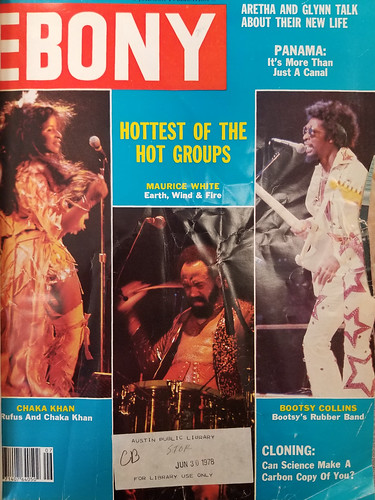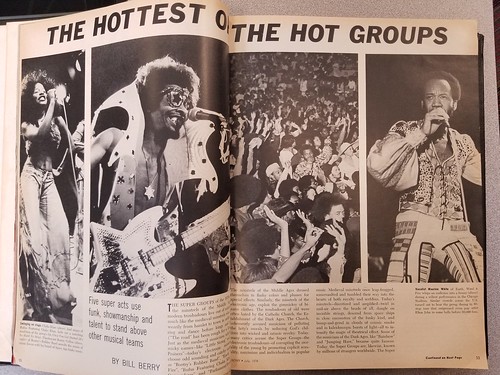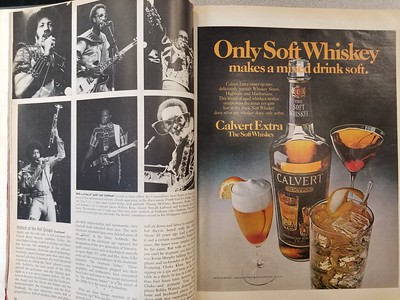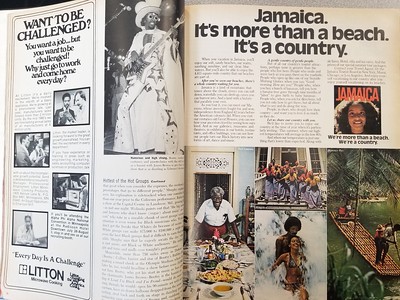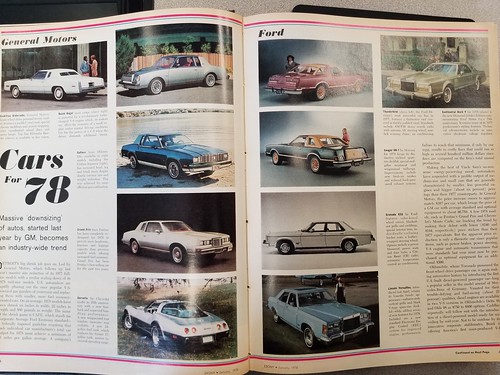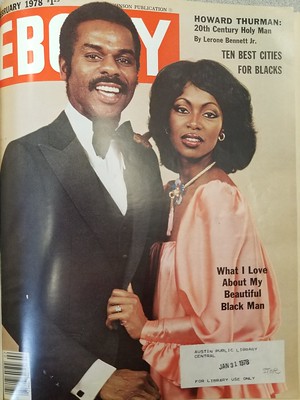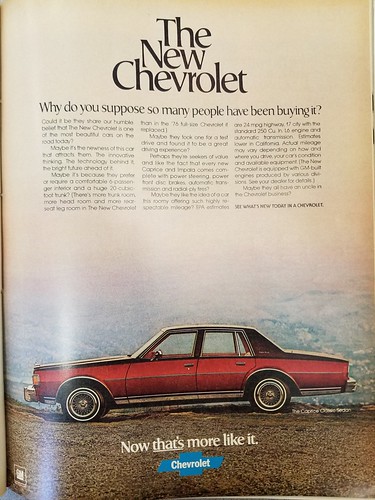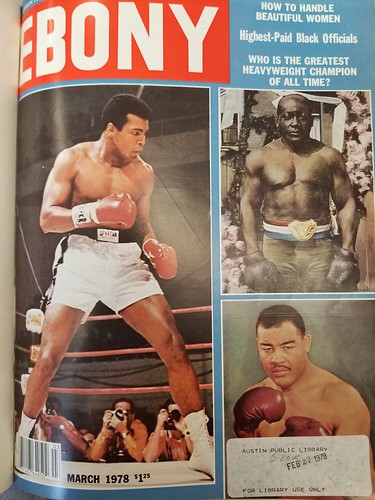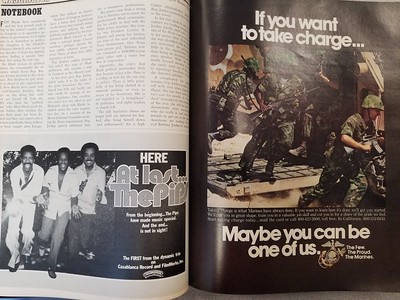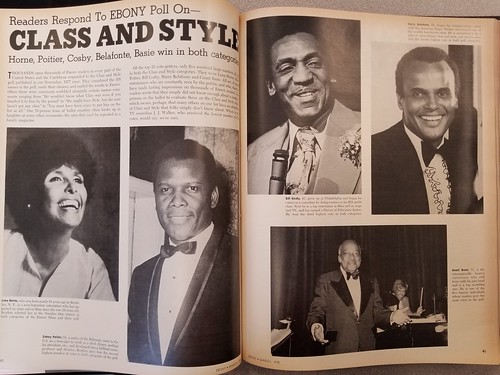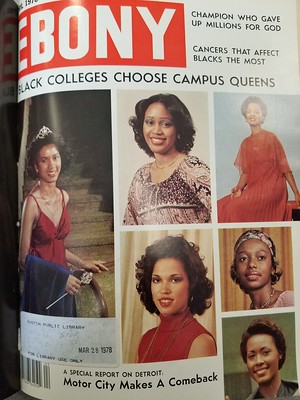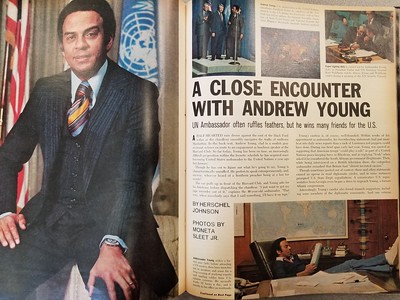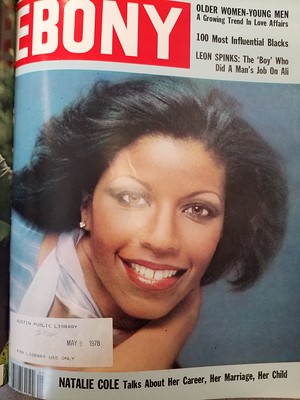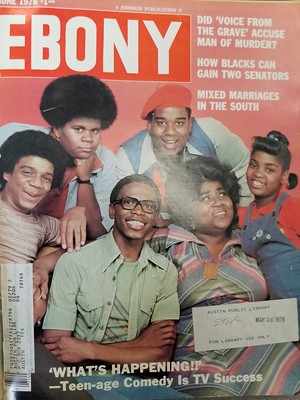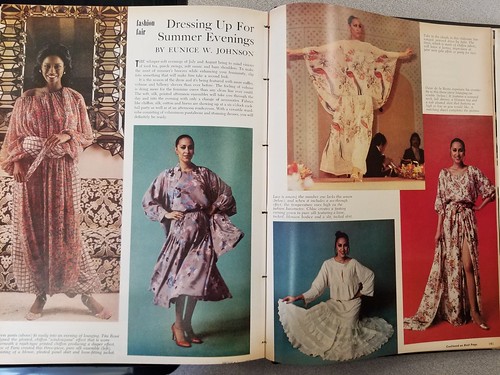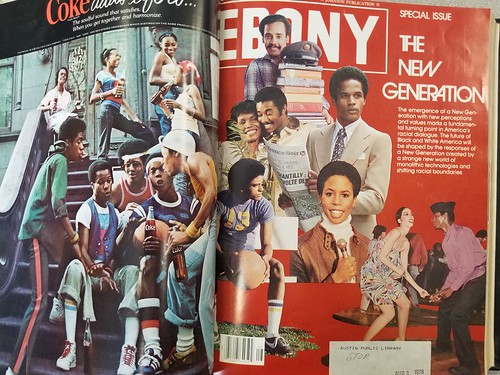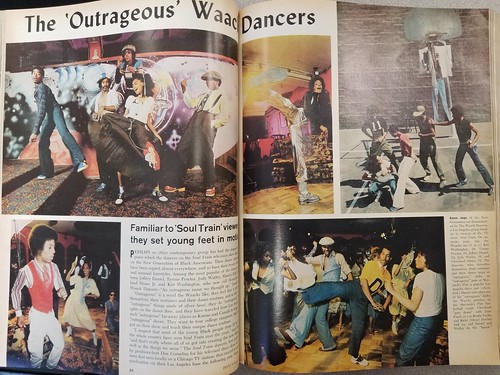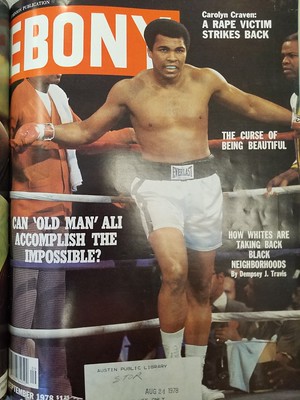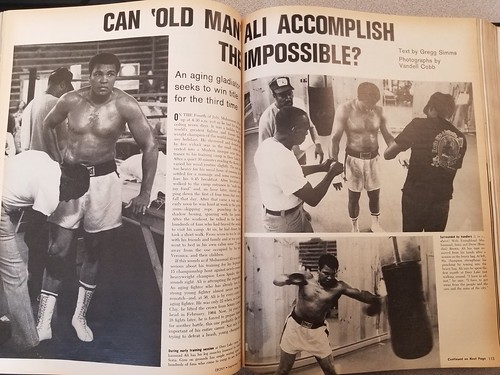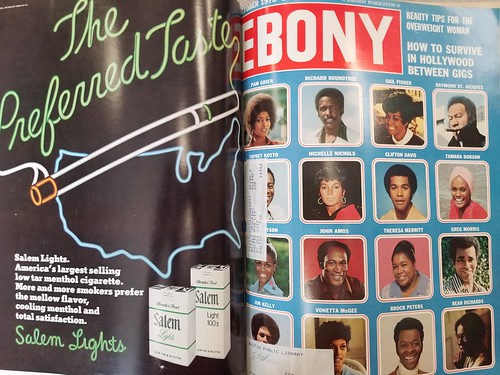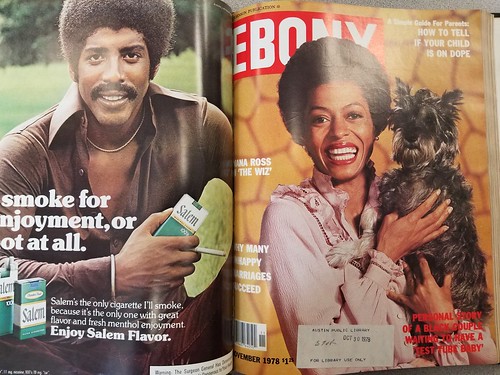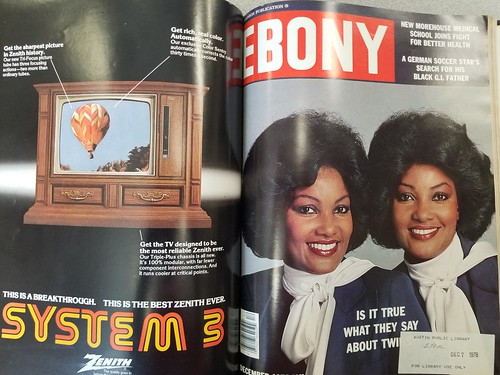Serendipity. I'd been listening to José James's new album, 1978, on repeat all week and came across all the issues of Ebony magazine from that year at the library. Let's take a look at the year through that lens
Ebony 1978, an album
Starting at the middle of the year,
June 1978 was the music issue.
On the cover, The Hottest of the Hot Groups in all their glory:
- Rufus & Chaka Khan
- Maurice White, Earth Wind & Fire
- Bootsy Collins, Bootsy's Rubber Band
The
lead article actually focuses on five of the top groups then making waves
Would have thought The
Commodores would be sure to feature, what with Lionel Richie and their origin story (meeting as freshmen at Tuskegee University). Ebony bait if there ever was such a thing. (they do get an inside photo)
Bootsy Collins was stretching out the funk with his Rubber Band. They had a great live reputation
Note the assertion in the ad: "Jamaica is more than a beach. It's a country". When you market yourself to black Americans, there's less of an emphasis on Jamaica as bacchanalia.
I note the interesting editorial decision that the
body of the text discusses Parliament/Funkadelic and quotes George Clinton extensively, but they doesn't print any photos of them. Methinks P-Funk were too edgy for the straightlaced Johnson publishers.
Maurice White and
Earth Wind & Fire were more wholesome and perhaps at their artistic peak. They released The Best Of Earth, Wind & Fire during the year. Mics were dropped.
This is Ebony so they only cover mainstream groups - no mention of say Cameo, Ohio Players, Brass Construction, Con Funk Shun, Bar-Kays, War, Mandrill or even Kool & The Gang even though all of them were in the mix in 1978.
The specter of disco is not mentioned here, the focus is on the bands with a reputation for their live shows and instrumentation. Albeit,
Donna Summer had her Ebony cover the previous year. In 1978, she was working on Bad Girls. Hot Stuff and all that.
Earlier in 1978, the January cover was
Richard Pryor. Sidenote: the more interesting feature is about "Black women - white men, the 'other' mixed marriage". Loving v. Virginia was only a decade in the past.
Hey!
Cars of 1978 (disclaimer I now work at a car company so I've started to pay more attention to such things)
One of the pleasures of
reading Ebony in those years was just how big the magazine was. The full tactile sensation turning those pages was unmatched. Typical issues were 160 pages, packed with advertisements, the style, the hair products etc. Call it the bourgeois id of black America.
Hey
a Chevy, now that's more like it
March 1978 asked: Who is the greatest heavyweight champion of all time?
Muhammad Ali or Jack Johnson? Ali was an evergreen topic for all media outlets throughout his life; any mentions boosted circulation.
The
US Army was a big advertiser (after the final draft in 1972 as the Vietnam war wound down), the black community was heavily recruited by the military. All branches of the military placed enticing ads. (opposite The Pips)
March 1978 - readers respond to the Ebony class and style poll
The
usual suspects win: Lena Horne, Sidney Poitier, Count Basie, Bill Cosby and Harry Belafonte. Black royalty.
Winners of the
style poll: Stevie Wonder, Ray Charles, Richard Pryor, O.J. Simpson, Redd Foxx, Aretha Franklin, Billy Dee Williams, Rev. Jesse Jackson, Eartha Kitt and Ben Vereen (of Jesus Christ Superstar fame).
Ebony April 1978
black colleges choose campus queens. Ebony was a society magazine.
Note: the special report on "Detroit - Motor City makes a comeback" seemed a bit premature. How many comebacks has Detroit made?
Andrew Young had been made UN Ambassador under Jimmy Carter's administration. Great in prestige but still a servant to power. I wonder how say Linda Thomas-Greenfield's reputation will fare after the display of the past year shielding Israeli warmongering.
Natalie Cole was luminous as ever (May 1978 cover). Not quite sure that the feature about Older women - young men applied to her. Interesting juxtaposition though.
June 1978 focues on
What's Happening!! the teenage comedy that was a big tv success, drawing on Cooley High
The
fashion fair issue includes a spread: dress up for summer evenings. I can see my mother's flowing robes
Ebony
July 1978 considers the new generation. I do wonder, did they leave a mark?
Ebony July 1978 sports a feature on
Soul Train, The Outrageous Waack Dancers, Kirt Washington, Tyrone Procter, Cleveland Moses Jr, Jeffrey Daniel, Jody Watley, and others. The latter two spawned Shalamar
Ebony September 1978 again wondered
Can old man Ali accomplish the impossible?
Muhammad Ali prepares for the rematch with Leon Spinks to regain his heavyweight title at the Superdome in New Orleans.
Note:
Lou Rawls' Budweiser ad was doing numbers
Sidenote the second: the ads for
mentol cigarettes and liquor are some of the more inventive
Ebony October 1978. Hollywood -
how to survive between gigs. The feast and famine of creative types endures. It's the same old story
Ebony November 1978
Diana Ross debuts The Wiz (no mention of Michael Jackson who would steal the show). All I remember of her album of that year was the
cigarette cover and, I guess, Reach out I'll be there. Nothing else stuck
Finally, Ebony December 1978 asked: is it true what they say
about twins? Inquiring minds want to know
Going back to the
first image, Ebony did hit on some touchstones in 1978:
- Earth, Wind & Fire released their greatest hits album and unleashed September. There were showing off by this stage
- Chaka Khan released her debut album although she wasn't done with Rufus by any means. She said it all with her anthem: I'm every Woman
- Bootsy Collins continued to made hay, touring on the strength of Ahh...The Name Is Bootsy, Baby!
- The Commodores came out with Natural High, Lionel Richie gifted us Three Times a Lady
- Parliament released Motor-Booty Affair and their live shows were the stuff of legend
I did mention the specter of disco that would decimate the funk bands in short order. Some adapted, but many didn't. e.g. Boogie Wonderland was a success, but James Brown didn't handle the transition. Indeed 1978 was the first time that JB didn't have a response to the music that was in the mix.
Not to be too reflective, but I should note that 1978 would mark a high-water mark for blacks and much of the working class in the US for a generation. They might have been grooving to Good Times by Chic or Y.M.C.A. by The Village People but the Reagan retrenchment was just around the corner. Eyes wide open.
The relative leveling of society and the real economic and civil rights gains would take a back seat. The gains that accrued over the next 40 years were unevenly distributed to say the least. It was Baby Huey's Hard Times or Gil Scott-Heron's Winter in America that ensued. But I digress.
On the brighter side, I had no agenda here other than to soak in those images and read up about those times. You had to be there I guess. Kudos to
José James for the revival of music that mattered.
And for good measure, here's a massive playlist - the
music of 1978. My own albums of the year were Golden Time of Day by Maze, Cool Ruler by Gregory Isaacs and Social Living by Burning Spear. Your mileage may vary...
File under: music, culture, Ebony, black, observation, perception, magazine, history, appreciation, USA, toli
Writing log: April 26, 2024







